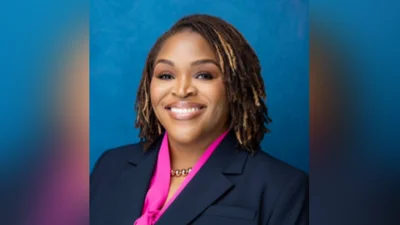A popular fast-fashion company based in China is being questioned by a group of U.S. senators over its use of cotton textiles traced to a region in China which uses forced labor.
U.S. Sens. Bill Cassidy (R-La.), Elizabeth Warren (D-Mass.) and Sheldon Whitehouse (D-R.I.) sent a letter on Feb. 9 to Chris Xu, owner of Shein, requesting transparency in the company's supply chain after reports found that its "products are made with cotton from Chinese slave labor."
“We are concerned that American consumers may be inadvertently purchasing apparel made in-part with cotton grown, picked, and processed using forced labor,” the senators wrote in the letter.
"We are also concerned that Shein may be pursuing a strategy to price shipments under de minimis value to minimize exposure to U.S. Customs and Border Protection inspection to avoid scrutiny under Section 307 of the Tariff Act of 1930."
The letter posed several questions that the senators asked Xu to respond to within 30 days, including, “Does Shein, its parent, subsidiary, or any of its suppliers use cotton fibers from the XUAR in the production of any garment it sells?” and “How many supplier audits did Shein conduct in 2022?”
The lawmakers' actions are being hailed by the National Council of Textile Organizations (NCTO), which represents the U.S. textile industry.
“NCTO applauds Senator Bill Cassidy, Senator Elizabeth Warren & Senator Sheldon Whitehouse for demanding information from Shein about whether it sources cotton tied to #Xinjiang forced labor. It's time to stop forced labor apparel from bleeding into our market through the de minimis backdoor loophole!” the NCTO said in a Facebook post.
The senators' letter comes after recent reports that found Shein’s garments use cotton from China’s Xinjiang Uygur Autonomous Region (XUAR).
Bloomberg News reported in November that it had contracted Germany-based labs to test garments purchased from Shein to determine whether cotton used in the garments was sourced from Xinjiang. The tests found that the garments were made with cotton traced back to the XUAR.
President Joe Biden signed the Uyghur Forced Labor Prevention Act (UFLPA) into law on Dec. 23, 2021. The law prohibits importing into the U.S. any "goods, wares, articles, and merchandise mined, produced, or manufactured wholly or in part in the Xinjiang Uyghur Autonomous Region of the People’s Republic of China, or produced by certain entities" pursuant to Section 307 of the Tariff Act of 1930. The law includes "rebuttable presumption" that if Xinjiang was part of the supply chain, it is the responsibility of the transacting companies to prove their supply chains are clean.
However, the "de minimus" exemption allows goods valued at $800 or less to be brought into the U.S. duty-free. This creates what the Coalition for a Prosperous America (CPA) calls a "serious loophole" that keeps the Customs and Border Protection (CBP) "from ensuring goods made with forced labor do not enter the U.S. market."
The de minimus level was increased in 2016 from $200 to $800, a move that has "led to less visibility, more shipments, and a lot less information about what is in those packages. Goods that would normally be tariffed at ports can come into the country without a tariff if the item is priced at $800 or less," the CPA reports.
Since de minimis packages are not reviewed by CPB when they enter the country, Shein can import its inexpensive products via the loophole.
"Shein would unlikely exist without de minimis," the CPA reports "as it can basically set up shop on an app or website hosted here, and sell directly to American consumers from China."
Chris Xu founded Shein in 2008 as a wedding and general-apparel e-commerce site that grew in popularity because of its "economical prices," Asia Markets reported. The company was valued at around $100 billion in April 2022, making it the world’s largest online fashion retailer, Asia Market reports.
The United Nations Office of the High Commissioner of Human Rights (OHCHR) released a report on Aug. 31 addressing concerns dating back to 2017 that members of the Uyghur community and other ethnic minorities in China had disappeared, been sent to “re-education” camps in the XUAR, or been subjected to forced labor, sexual violence, or other abuse.
OHCHR assessed these allegations by analyzing official documents and satellite imagery and conducting interviews with 40 people "with direct and first-hand knowledge of the situation in XUAR." The people interviewed by OHCHR who had been detained in "Vocational Education and Training Centers" (VETC) stated that they did not have access to a lawyer at any time in the process and they were not given an alternate option, despite claims from the Chinese government that VETC facilities were an alternative to jail time, according to the report. All of the interviewees stated that they were not allowed to leave the facilities and visit home. Around half of the interviewees were allowed occasional visits by or phone calls to family members under heavy surveillance, while the other half said they had no contact with their families, who did not know where they were.
Based on these accounts, the OHCHR determined that the usage of VETC facilities constitutes a form of deprivation of liberty, which, according to international human rights law, cannot be arbitrary, the report said. Two-thirds of the detainees interviewed by OHCHR described “treatment that would amount to torture and/or other forms of ill-treatment, according to the report. The detainees described being beaten with batons, including with electric batons while strapped to a chair, being interrogated while water was poured on their faces and being held in solitary confinement for prolonged periods of time.









